My 5th wheel survived the harsh Oregon winter, but getting it out of the residential area it was parked in turned into a major ordeal. The trailer was parked too close to a fence, making it nearly impossible to maneuver it out. I ended up spending an entire day just figuring out how to move it without causing damage.
I came up with the idea of backing the trailer onto some greased boards to reduce friction. This way, we could try to slide it away from the fence instead of trying to tow it out directly. A friend of mine brought over a truck, and we attached it to the back end of the trailer. Slowly, we started pulling the trailer, and it began to slide across the greased boards. It was a painstakingly slow process, requiring constant adjustments and a lot of patience.
At one point, it seemed like we might need to call in a crane or some other heavy machinery to lift the trailer out of the tight spot. The thought of this was daunting, as it would likely take a long time to arrange and be very expensive. Thankfully, with persistence and a bit of creative problem-solving, we managed to get the trailer out without having to go down that route.
From the suburbs, I transitioned to spending a week boondocking in a friend's boatyard. For those unfamiliar with the term, boondocking refers to staying in a trailer or RV without access to external services like electricity, water, or sewage hookups. Essentially, you're off the grid, relying solely on the resources you bring with you, such as water tanks, generators, and battery power.
The boatyard was a fascinating place to boondock. It was a stark contrast to the suburban environment I had just left, with rows of boats in various stages of maintenance and repair.
Living off the grid in this setting posed some unique challenges and required a lot of preparation. I made sure my water tanks were full and that I had enough fuel for the generator to power essential appliances. Managing waste was another important aspect, as I had to be mindful of the limited capacity of the grey and black water tanks.
Boondocking there also provided a unique sense of independence. There was something deeply satisfying about being self-sufficient and resourceful, knowing that I could comfortably live without the conveniences of modern infrastructure. It was a week that tested my preparedness and adaptability.
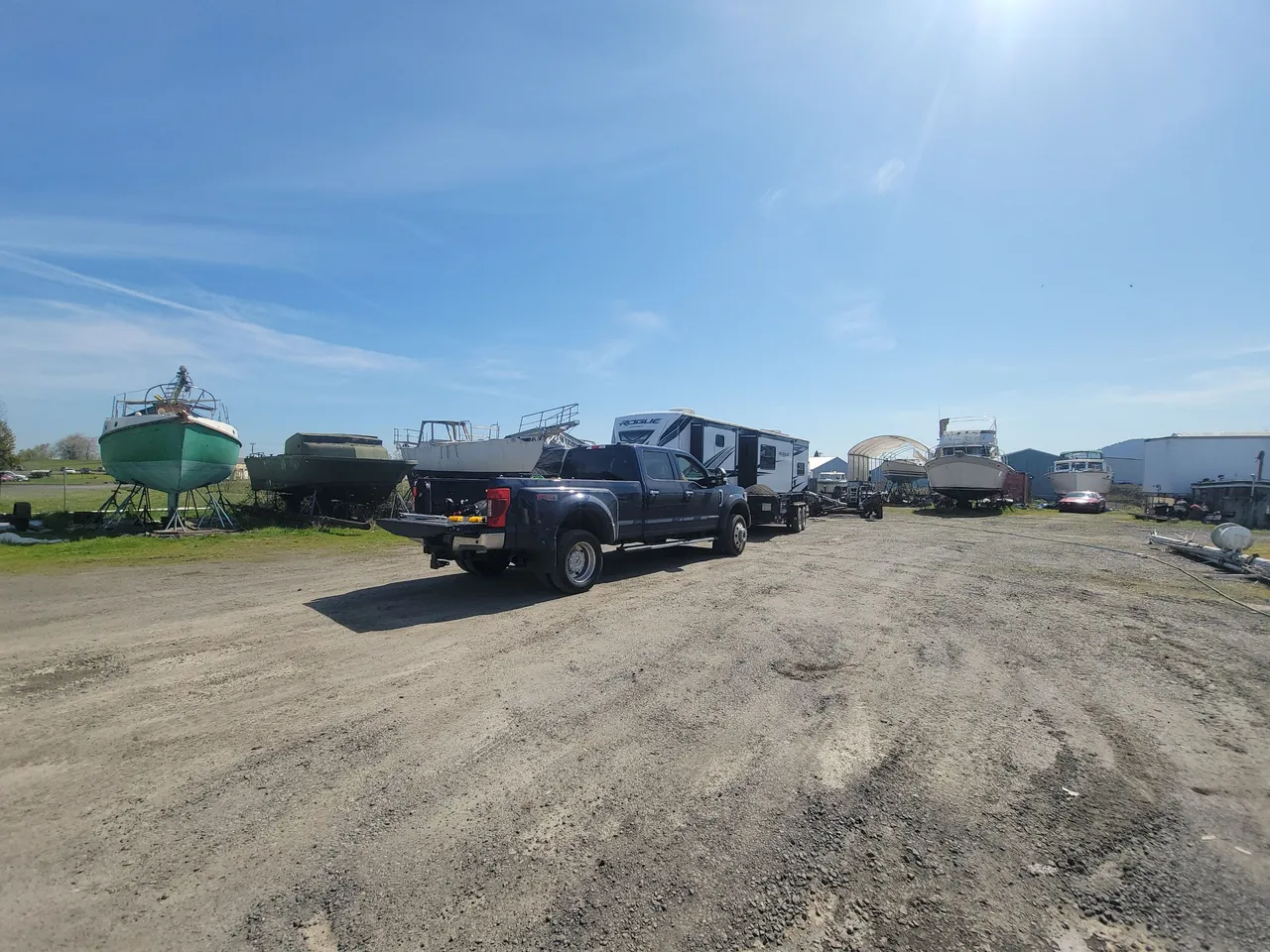
'The Beast' and 'The Lair' among the boats.
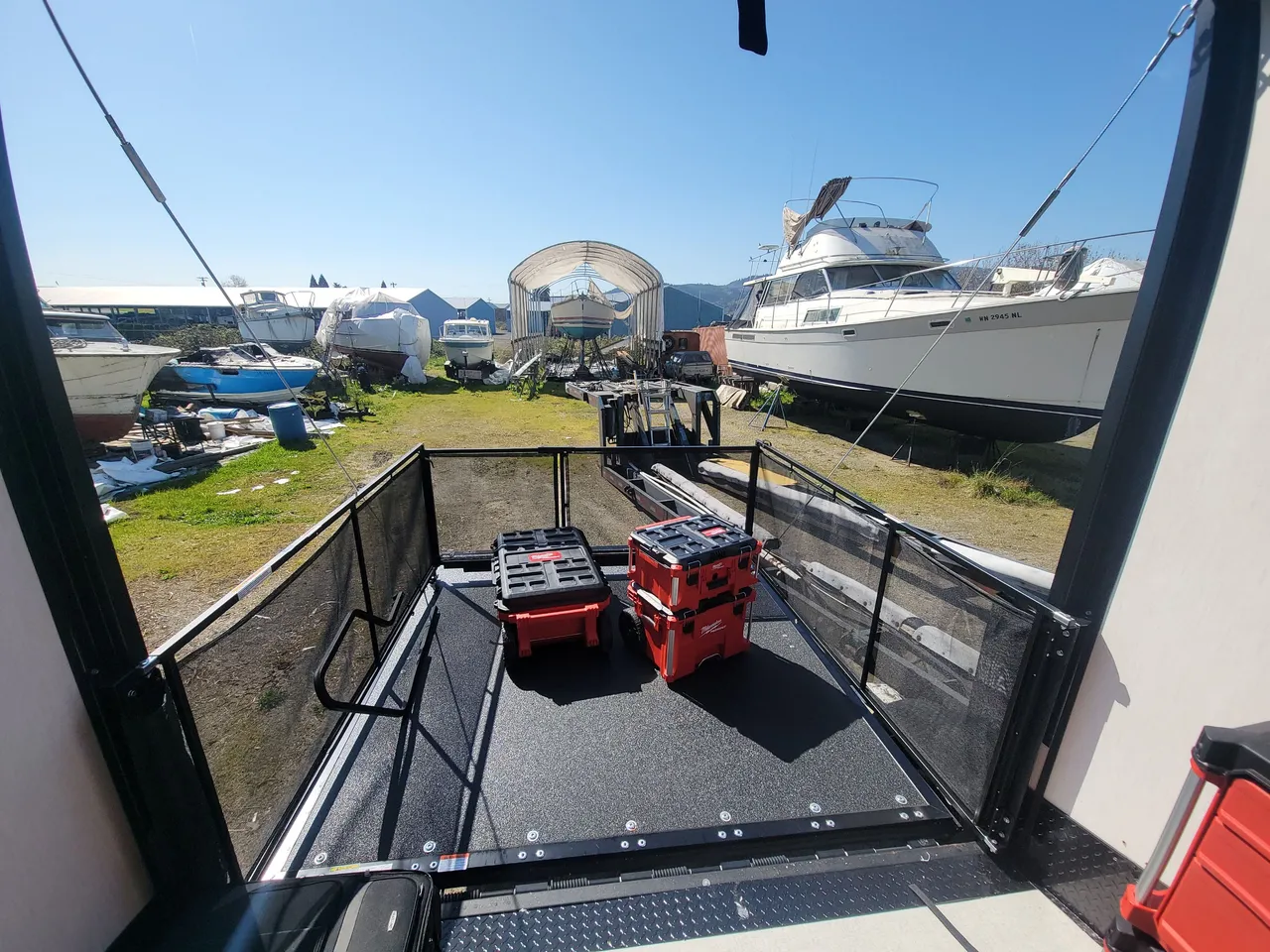
The view from my back deck.
Here I did some maintenance work including cleaning the roof which is about 14 feet off the ground.
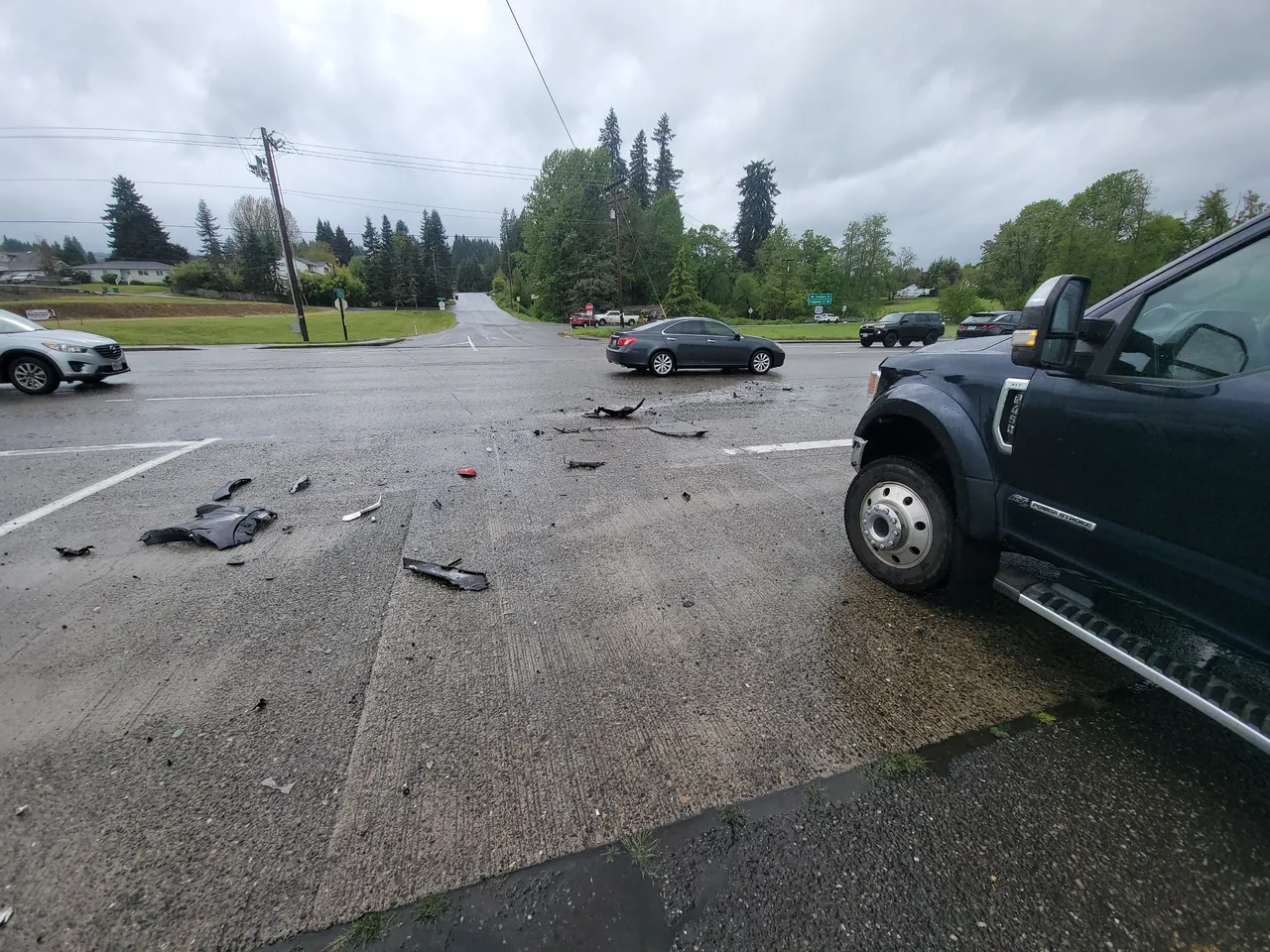
The Beast got hit right before I was about to leave!
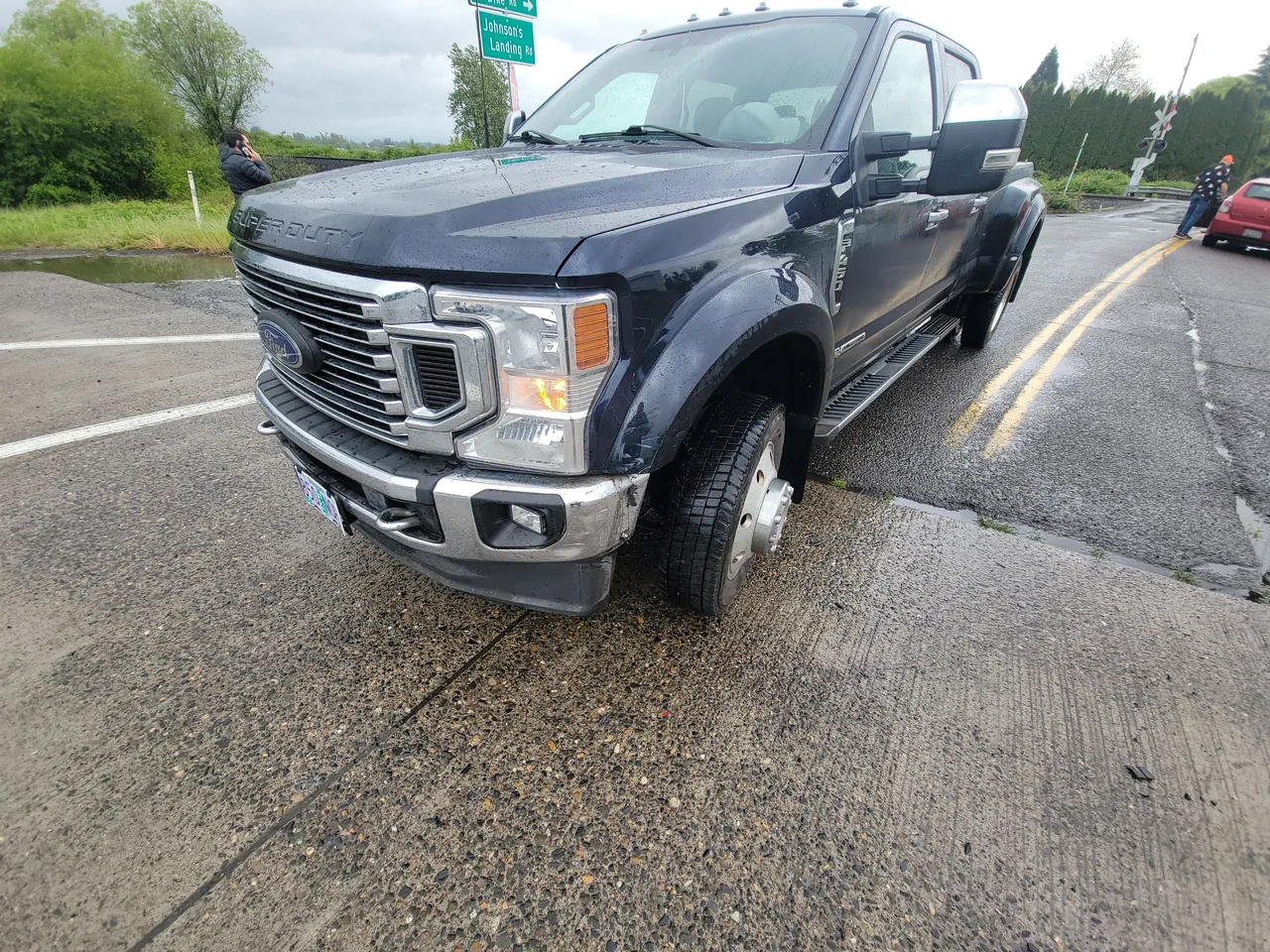
It's hard to believe but that is $4700 worth of damage. The guy that hit me totaled his car. The Beast just winked at him!
From the boatyard we hit the road and went to Tillamook, which is on the Oregon coast. We were there a total of 3 weeks.
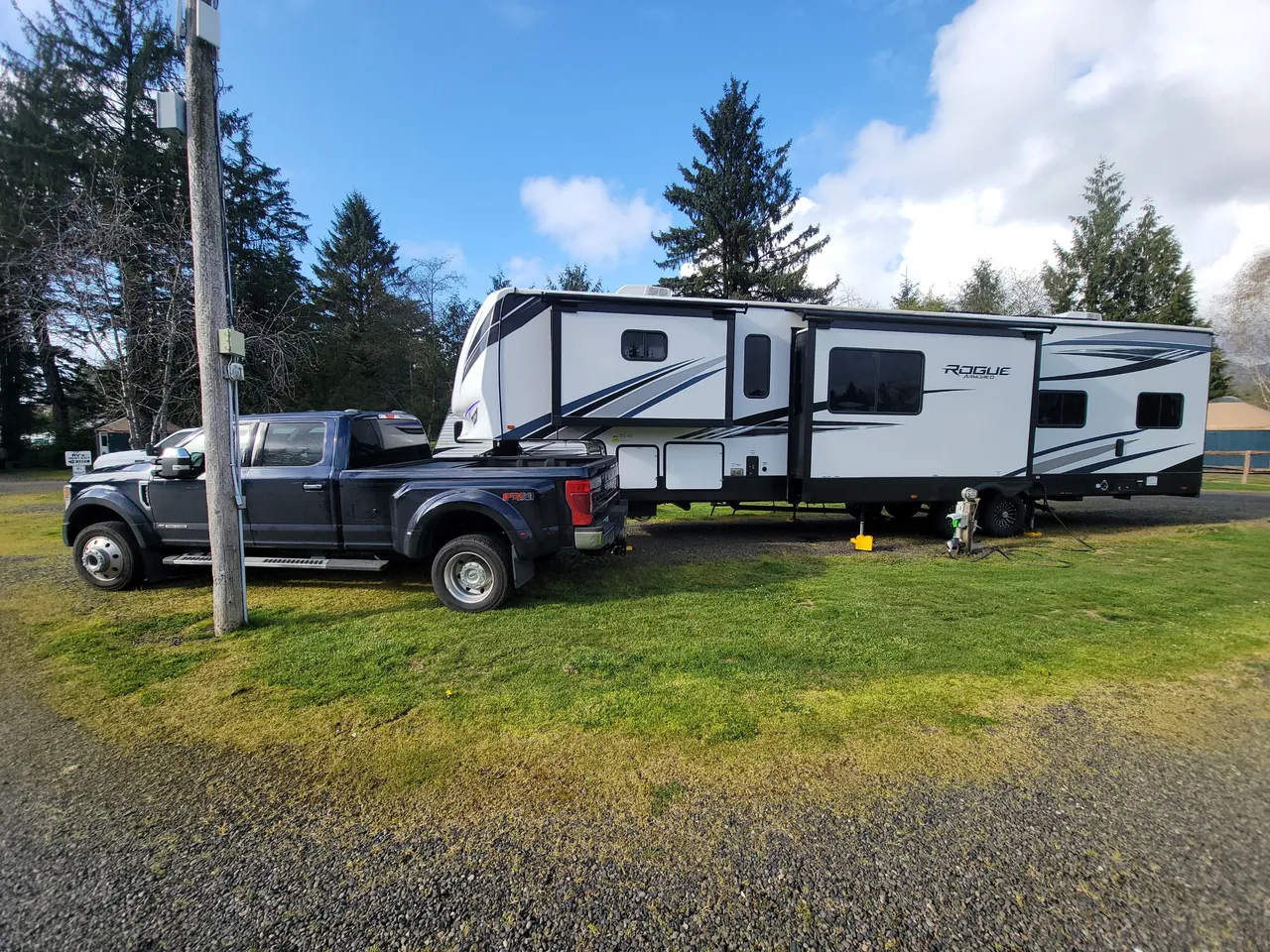
'The Beast' and 'The Lair' parked at Tillamook.
From Tillamook we spent a couple weeks in Silverton, OR.
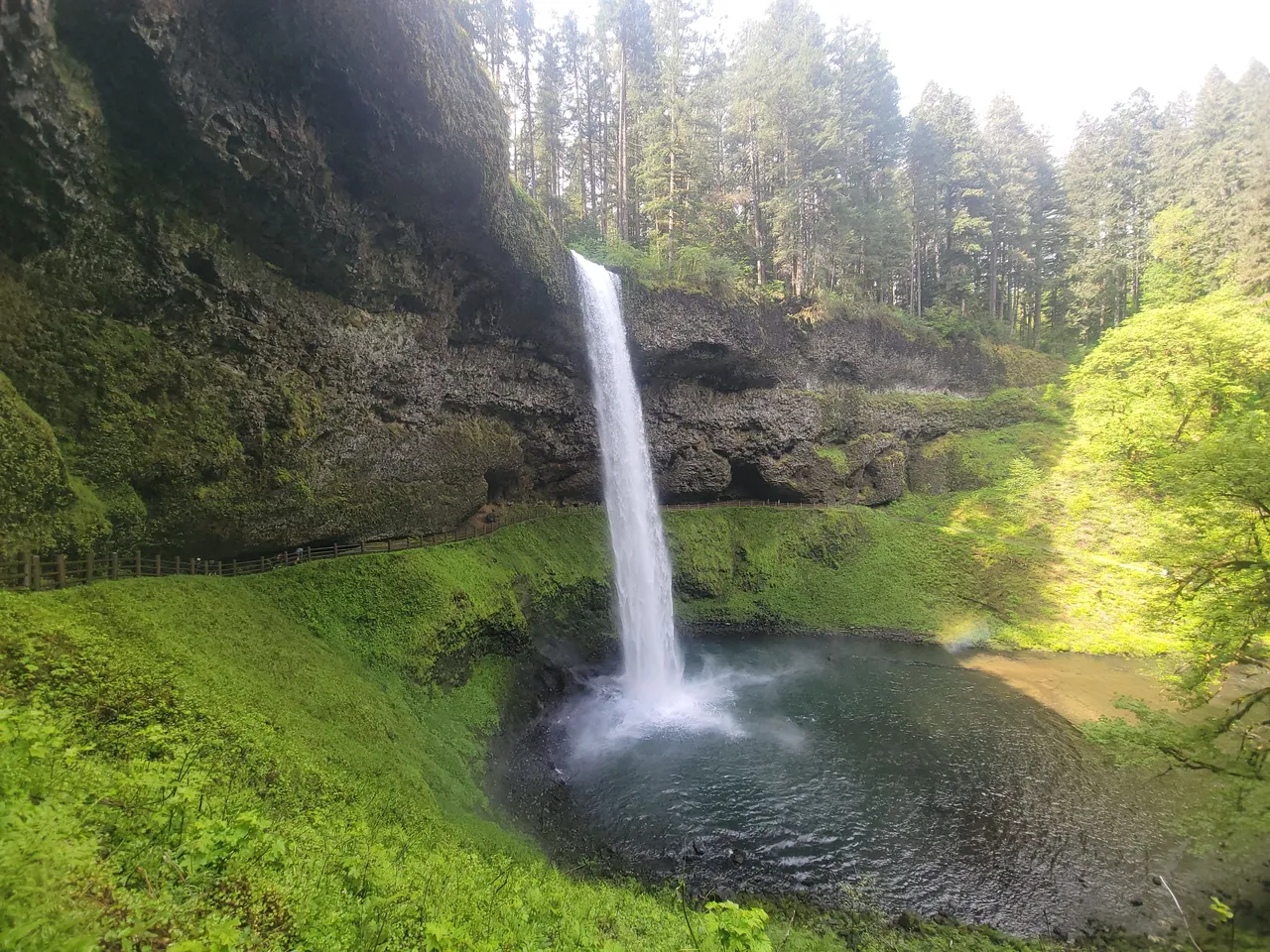
Silver Falls State Park near Silverton, OR.
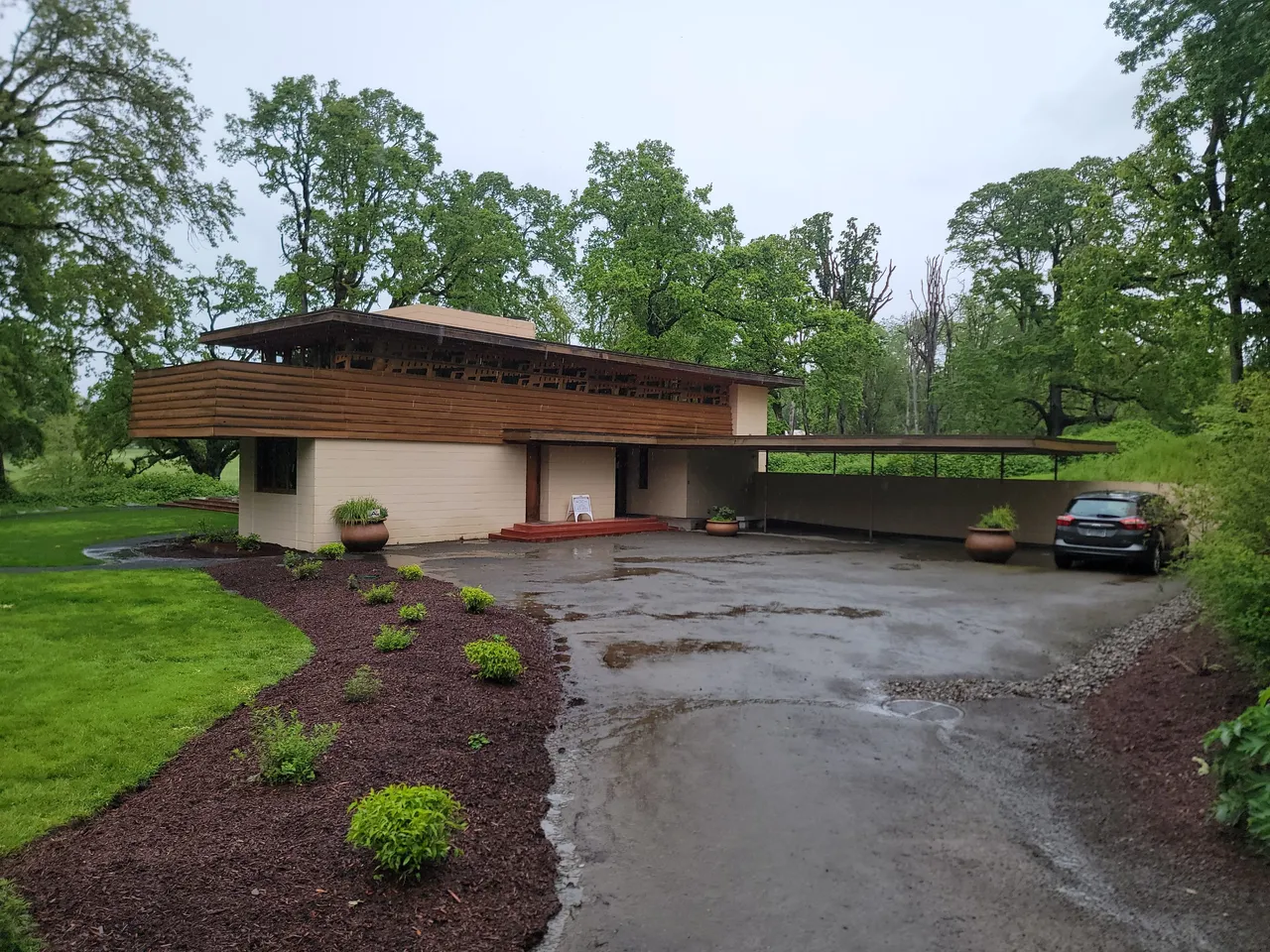
The only Frank Lloyd Wright house in Oregon in Silverton.
From there we spent two weeks on a horse ranch in Redmond, OR, and did another week of boondocking on some land in La Pine, OR.
Below is our route so far which has taken us about 400 miles and about 10 hours of towing so far!
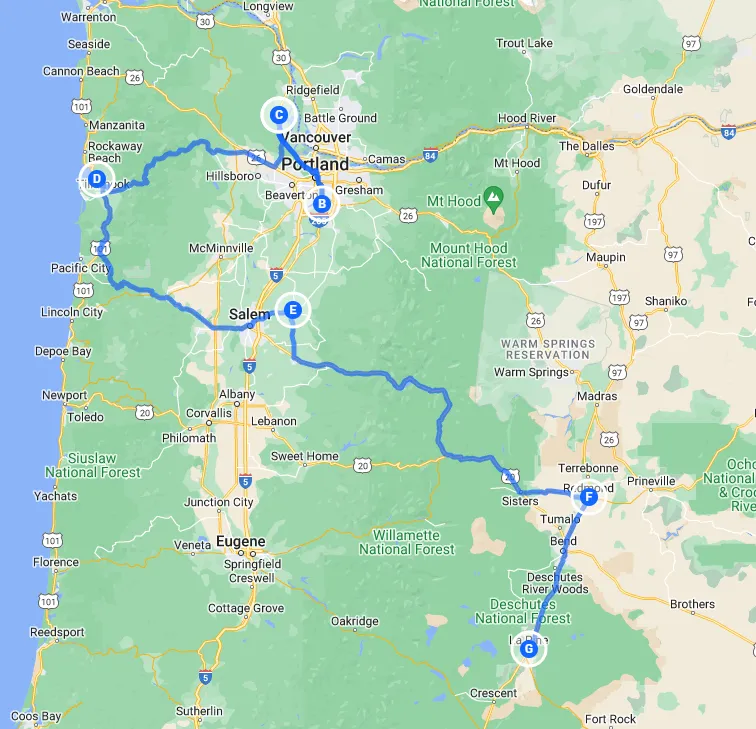
I will try to take more pictures and post more going forward. It can be challenging at times. This lifestyle can be a lot of fun but it is also a lot of work!